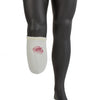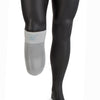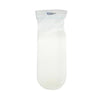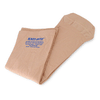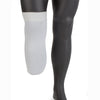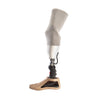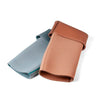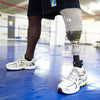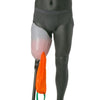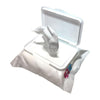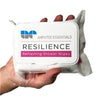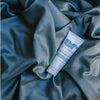Your Skin Deserves Some TLC
When surface skin is healthy, it looks and feels smooth and soft, like the skin of a baby. In contrast, damaged skin appears dry, rough, and dull. But prosthetic skin care isn't an aesthetic issue, but rather an issue of comfort and mobility.
Skin is a protective covering, the body's armor against infections and diseases. Because of skin's resilient nature, it's able to strengthen vulnerable areas on the body that endure a lot of stress. (One way it does this is by forming calluses, especially where the socket of the artificial limb creates pressure and/or rubbing.) Your skin helps regulate your temperature, and acts as the body's smoke detector, alerting the rest of the body to pain and discomfort and potentially harmful stimuli. And because amputees have a smaller overall skin surface area, taking care of the skin you do have is crucial to your body's overall health and comfort.
Preventative care is the best way to ensure your skin's health, and the best way to do that is to follow a skin care routine and to pay close attention to the ingredients in every product you use. If your skin is already showing the signs of damage, the right routine and the right products will give it what it needs to heal and keep you comfortable.
Related Articles:
- Alcohol & Skin Care: The Facts
- Do I have a skin disorder?
- How-to create a prosthetic skin care routine?
- How do amputees deal with friction?
- How Does Your Skin Work?
- Ingredients To Avoid
- Know Your Skin Type
- Parabens: Are they really a problem?
- The DOs and DON'Ts of Skin Care
- Why are fragrance free products best?
- Why do some skincare products cause a negative reaction?
- 15 Skin Problems Amputees Experience & How to Solve Them
- Common Skin Issues for Above-Knee Amputees
RELATED ARTICLES [LINKS]:
- Dos & Don’t's of Skin Care
- How Do I Create A Skin Care Routine?
- Skin Care Buyer's Guide
- Do I Have A Skin Disorder?































